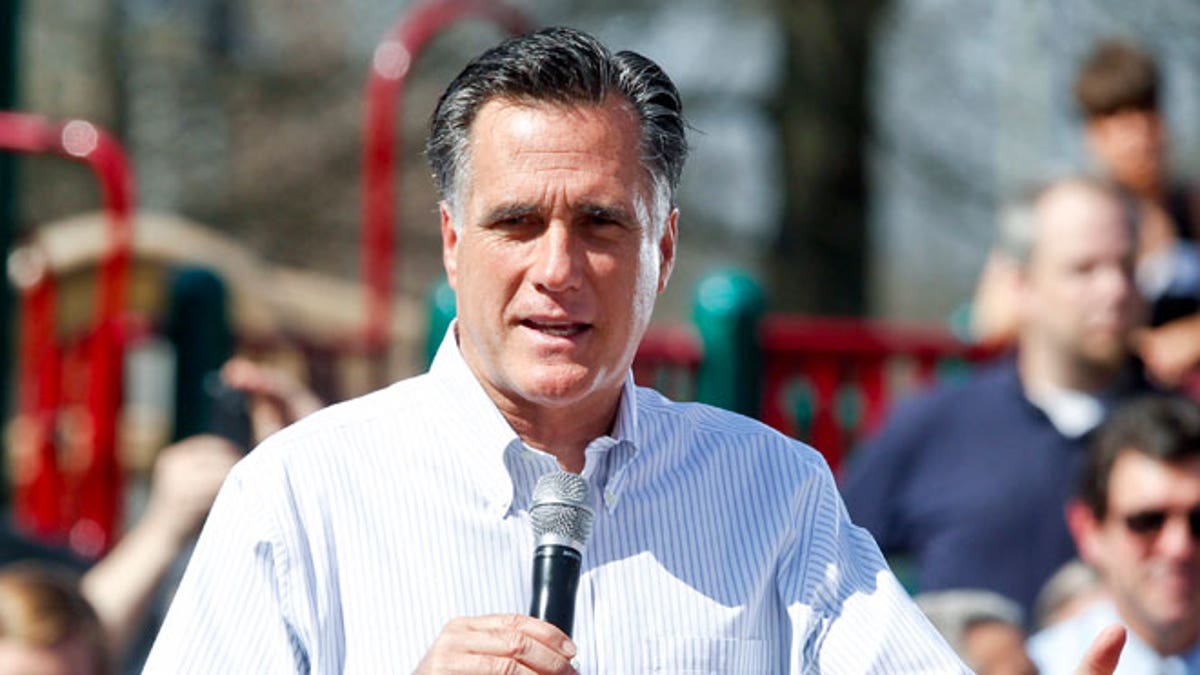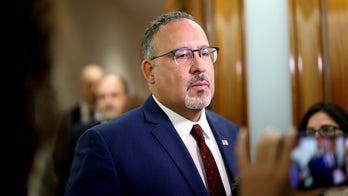
(Reuters)
Mitt Romney was to launch himself as the presumptive Republican presidential nominee after an expected sweep of five primaries on Tuesday, turning his attention to the November general election showdown with President Barack Obama.
In a speech in New Hampshire, Romney planned to pivot to the campaign against Obama and lay out his vision for the country and his differences with the incumbent.
"After 43 primaries and caucuses, many long days and not a few long nights, I can say with confidence, and gratitude, that you have given me a great honor and solemn responsibility," Romney will say, according to excerpts released by his campaign.
"A better America begins tonight," he said in the excerpts.
Obama and Romney already have engaged in heavy combat in recent weeks, which will likely increase in the six months of campaigning heading up to the November 6 election to decide whether to give Obama another four years in the White House.
Romney effectively won the Republican race on April 10 when his top rival, Rick Santorum, suspended his White House campaign, but he planned to claim victory in Tuesday's speech in the general election battleground state of New Hampshire.
"Now that we have this one-on-one contest, voters are going to be paying closer attention to the differences between the two men," a senior Romney adviser told reporters, adding Romney would address voters "in a new light as the presumptive Republican nominee."
Romney had 695 delegates heading into Tuesday's primaries in Connecticut, Delaware, New York, Pennsylvania and Rhode Island, which have a combined 231 delegates at stake. Romney needs 1,144 delegates to formally clinch the nomination, a designation that is still weeks away.
GINGRICH TO QUIT?
The primaries could spell the end for another remaining rival, former House of Representatives Speaker Newt Gingrich. He said on Monday he would reassess his candidacy if he did not win the primary in Delaware, where he had campaigned heavily in recent weeks.
Gingrich has won only two primary contests - in South Carolina and Georgia, which he represented in Congress - and his campaign is deep in debt, but he has been hanging on to keep pressing Romney on conservative issues.
The other remaining candidate, libertarian Texas Congressman Ron Paul, said again on Monday that he will not drop out of the race even after Romney clinches the nomination.
Romney, a former governor of Massachusetts, enters the general election campaign bruised from a bitter primary battle with a series of challengers who questioned the sincerity of his conservative views.
He is faced with the task of consolidating support from conservatives who distrust him for the more moderate positions he took as governor of liberal Massachusetts, particularly his support for a healthcare overhaul that became a precursor to Obama's federal plan.
At the same time, he must turn toward winning over undecided independent voters who are likely to decide the election, and bolster his lagging support among women, Hispanics and young people.
Romney also has been busy expanding his staff for the general election and launching a search for a vice presidential running mate. Included on his long list of potential No. 2's is Florida Senator Marco Rubio, who campaigned with him in Pennsylvania on Monday.
In spite of those challenges, Romney opens the general election campaign in a relatively strong position, with national opinion polls showing a tight race developing with Obama.
Obama, with all the advantages of the incumbency, is well-liked by Americans but there are deep doubts about his handling of the U.S. economy and anger over high gasoline prices which may, however, be trending downward.
He must convince Americans that his prescriptions for the sluggish economy will lead not just to a stock market gains, but to real job growth among the dispirited middle class.
Given the stakes, the campaign will likely be overwhelmingly negative as the two sides battle through TV and radio ads. Both candidates and outside groups that support them are building campaign war chests likely to reach into the hundreds of millions of dollars.
Their goal is to portray the other side as being out of touch with the concerns of ordinary Americans and unable to solve intractable problems from debt to deficits to caring for an aging population.




